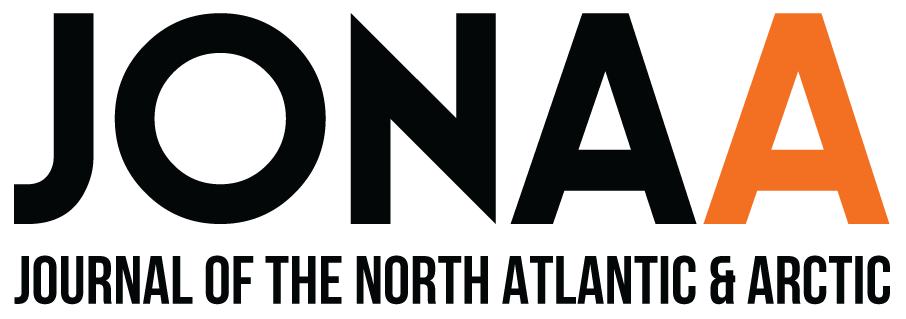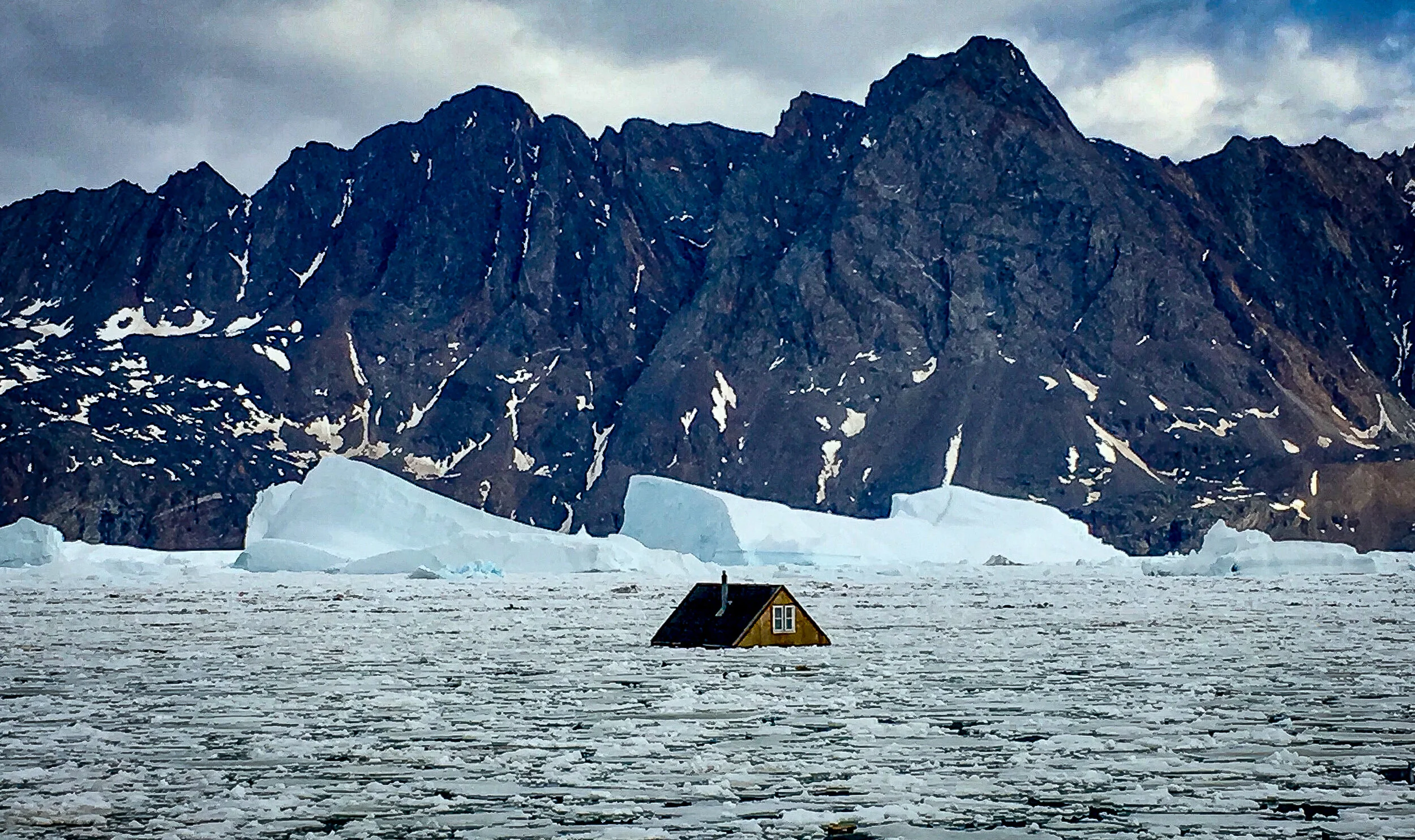Focus on The West Nordic Council
POLICY
Writer:
Edda Jóhannsdóttir
The West Nordic Parliamentarian Council of Cooperation was formed in 1985.
The name was changed to the West Nordic Council in 1997 as the member parliaments approved the Council's present Charter and celebrated its 30 year anniversary in 2015.
Inga Dóra, has worked with the Council from June 2014. Her first task was to apply for an Observer Status in the Arctic Council.
We want to have an impact and know what our parliaments are doing
“There has been a lot of progress over the last two years, with focus being on the Arctic Regions. Our policy has been clear from the year 2011, and in action since 2016. With the Observer Seat, we are making policy formulation for the next two years. The council has increased it’s activities in the Arctic, which is a good thing. The past 15 years the West Nordic Council has observed the Standing Committee of Parliamentarians of the Arctic Region, SCPAR, and now it was time to seat by the table at the Arctic Council,” says Inga Dóra Guðmundsdóttir Markussen is the General Secretary of the West Nordic Council, a parliamentary cooperation between Iceland, Greenland and the Faroe Islands.
The Council is best described as an iceberg
“If the Council was awarded Observer Status, we decided that our contribution or focus would be on the Sustainable Development Working Group. This Council is best described as an iceberg, the tip being the ministerial meetings, but all the work and preparation is under the surface where we make decisions about our focus in various places. The inner strategy is that we meet twice a year. We have this experimental project where we have our annual meeting in the parliament chamber. We did that for the first time in Iceland last August: Next year it will be in the Faroe Islands, and in Greenland 2019. The reason we have the meetings in the parliament chamber is to be more visible, to have access to the governing power and the media. We always have culture nights, where we invite people to come and learn more about their neighbours in the the West Nordic region. Not just to discuss issues which need to be promoted or matters strengthened, but to connect with people and get to know them. We are not in the position of power, but we are uniquely placed compared to other similar groups and the recommendations the Council agree on are send to the national parliaments. That way we get the conversation and sentiment from all countries about the jointly agreed proposals. Until now the parliaments have approved all of our propositions and although it takes time, we can now see the proposals of 2015 being actualised.”
Focus on transport, free trade, business and marine cooperation
Inga Dóra says that the Council encouraged the Foreign Secretaries to meet every year and decide what they want to prioritise. “In 2012 we urged the parliaments to cooperate on their policies for the Arctic, and in 2014, when we met the Foreign Secretaries, we learned that they didn’t know what to prioritise or what their shared priorities were.
The president of the Council, Unnur Brá, told us that we could identify, recommend and advise about what fields to focus on and where cooperation was most needed. Our focus is on transport or transportation improvements, free trade, business and increased cooperation over fishing issues. In 2015 we asked the government departments to create working groups with focus on business and free trade and then file a report. This work has now begun,” says Inga Dóra.
Plastic free ocean and West Nordic songbook
“In the Council’s last meeting they also focused on culture and asked for West Nordic songbook with musical notation. One thing that define our work is joy and I want to hold on to that. Singing is still a tradition that the members hold on to, and that is in my opinion very important. They also talked about vocational education within the fishing industry and where the three countries can learn from each other. And last but not least we had a proposal regarding micro-plastic and requested the governments to urge the Marine Research Institute in each of the three countries to carry out research in the North Atlantic ocean into the effects of plastic in general and micro plastic in particular. We would very much like to see the governments to aim for a completely plastic free ocean and as all of our proposals has been agreed upon we recognised the need to prepare every proposal as efficiently and thoroughly possible to ensure consensus. Now we are awaiting the national parliaments' views on the issues”
With the Observer Status we are more significant
The Observer status is clearly important for the West Nordic Council. “Our Observer Status means that we can boost the parliaments to be more involved in the projects,” says Inga Dóra. “The Standing Committee of Parliamentarians of the Arctic Region, SCPAR, also has an Observer Seat and there are many organised interest groups in each of the member countries in this collaboration. We felt there was a democratic deficit within the policy making process. Our reasoning was that we want to be at the table, we want to have impact, and by monitoring and contributing to the work of the Arctic Council we also ensure that national parliaments are involved in the decision making process in the Arctic. We also want to contribute our thoughts and observations on the issues we believe are important. With the Observer Status we are more significant and can wield collective influence. We are the only islands in the enormous sea region of the Arctic, and that of course has an impact on our emphases.”
Welfare for everyone is a big concern
Inga Dóra also talk about the importance of family values.
“We are small and different nations but we all want the best for our children and families. So welfare for everyone is a big concern.
Inga Dóra has pleaded for assistance to help small scale businesses and not just the big corporation.
“It is important that the small nations and islands in the Arctic are sustainable and as we are few in numbers and far apart, to achieve this we must cooperate. We want to help everyone in the region with identifying the infrastructure they require to be sustainable. That is why we listen to the Indigenous organisations and our future aim is to increase communication and connection between Inuit communities within the region. It will be exciting to see what our parliamentarians wish to prioritize in Council proposals.”
Active participants in the Arctic Circle Assembly
“We are active participants in the Arctic Circle Assembly and have a cooperation agreement with the Assembly. We have what we call Arctic Parliamentary Network and we use the event to introduce our Arctic agenda and get to know each other. If someone has some ideas, we always would like to hear about them and give them due consideration. We also have break-out sessions in the assemble. This year we ask those who already have Observer Seats to share their experiences and concerns so we all can learn from each other. It is safe to say that we are in the important and enjoyable process of learning.”
Photo: Heiða Helgudóttir
“It is important that the small nations and islands in the Arctic are sustainable and as we are few in numbers and far apart, to achieve this we must cooperate. We want to help everyone in the region with identifying the infrastructure they require to be sustainable. That is why we listen to the Indigenous organisations and our future aim is to increase communication and connection between Inuit communities within the region”












